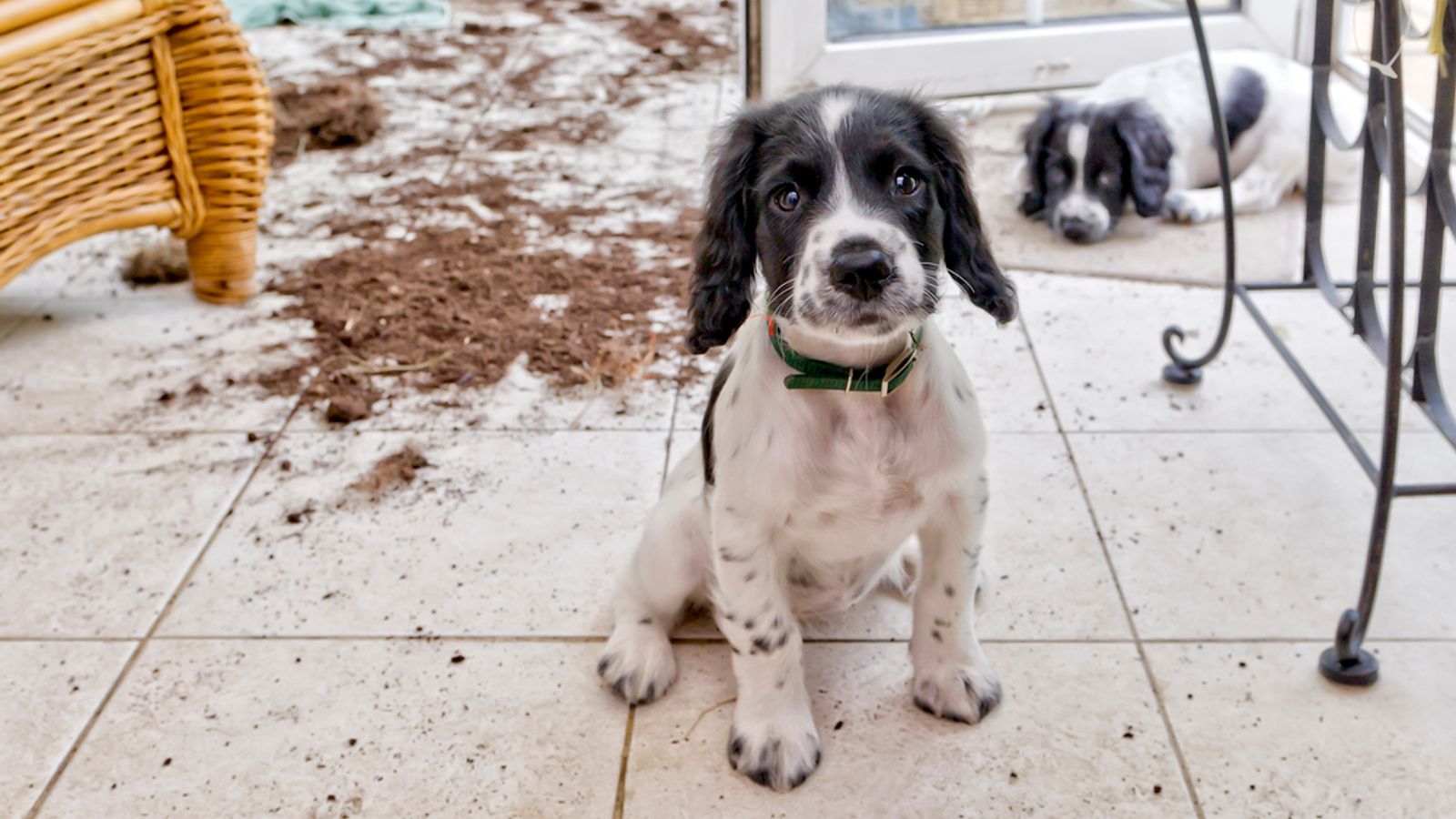Puppies bought during the COVID-19 pandemic are proving to be prone to bad behaviour, their owners have said.
A study by the Royal Veterinary College (RVC) has found four in five (82%) owners of ‘pandemic puppies’ have reported using aversive, or punishment-based, training methods to try to improve their dog’s behaviours.
Aversive techniques, such as shouting at a dog, or jerking its lead, are linked to further behaviour issues and are also ineffective, researchers said.
Please use Chrome browser for a more accessible video player
The survey, funded by the animal rescue charity Battersea, asked more than 1,000 UK owners to name problem behaviours they saw in their young dogs.
Almost all (97%) owners reported their dog had at least one problem behaviour from a list of 24 drawn from their answers.
They included issues with control and attention-seeking to aggression and fear/avoidance behaviours, such as anxiety/fear around other dogs, people, loud noises and more.
At 21 months, owners reported an average of five problem behaviours, while 20% of owners reported eight or more.
Nicola Sturgeon’s pandemic WhatsApp messages ‘all deleted’, UK COVID inquiry hears
Aberdeenshire mum launches legal action against NHS Grampian over daughter’s long COVID treatment
Scots share pandemic stories as UK COVID inquiry resumes in Edinburgh
The most frequent behavioural problems were control behaviours (84%), attention-seeking (77%), fear/avoidance behaviours (41%) and aggressive behaviours (25%).
As to how they trained their dogs over the same period, nearly all (96%) owners said they praised their pets verbally, but 80% also reported using one or more aversive methods or aids and 39% admitted they used two or more.
Please use Chrome browser for a more accessible video player
RVC lecturer, Dr Rowena Packer, who led the study, said problem behaviours “are extremely common in pandemic puppies, and in many cases, are potentially being exacerbated by owners using punishment-based training techniques.
“They are often a sign a dog is struggling to cope or that they haven’t been taught an appropriate response in a situation, rather than dogs intentionally behaving ‘badly’.”
Please use Chrome browser for a more accessible video player
Punishing them, she warned, “can lead to dogs becoming anxious and fearful, going on to develop further problem behaviours, including aggression.”
Robert Bays, Battersea’s Senior Animal Behaviour Manager, said the charity has seen a “significant increase” in the number of dogs coming to its centres with certain behavioural issues, “which can often be linked to the pandemic and the training challenges this unusual time presented”.
Read more:
DNA used to stamp out dog poo
Holyrood acts on XL Bully breed
Is Bobi really the world’s oldest dog?
Aversive training, he warned, “can often cause further behavioural problems in adulthood and lead to suppression of behaviour, not to mention significantly damage the relationship between pet and owner, which can be challenging to overcome in the future.”
Almost two-fifths (39%) of owners in the study were doing it for the first time, and a third (33%) said training their pet was harder than they had expected.
Fifteen percent of owners found their dog’s behaviour was worse than they had expected.
The study is part of the RVC Pandemic Puppies project that follows a group of puppies bought during the COVID-19 pandemic in 2020 under the age of 16 weeks from breeders in the UK.







